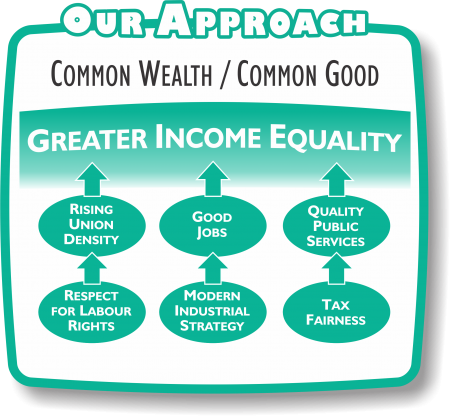RIDING HIGH
Food delivery riders win their right to unionize

BOSSES CAN’T HIDE BEHIND APPS ANY MORE. Couriers for the app-based food delivery company Foodora have won the right to unionize. This is the first time app-based workers in Canada have won access to that right.
On February 25, the Ontario Labour Relations Board rejected the idea the workers were independent freelance contractors, without any legal claim to the right to unionize. The board ruled the workers were, in fact, “dependent contractors” and therefore eligible to join a union.
Thomas McKechnie, a Foodora courier who started working to organize his co-workers in 2018, said he was excited by the ruling and particularly proud of the collective effort his co-workers put in to reach this stage.
Thomas says he is confident the couriers have all the votes they need to form a union.
The multinational app-based food delivery company operates in seven cities across Canada. Last year, Foodora’s couriers in Toronto and Mississauga began a unionization drive supported by the Canadian Union of Postal Workers (CUPW).
Foodora couriers are not guaranteed a minimum wage, nor do they get vacation or sick days. A union will give Foodora couriers the power to negotiate a much better deal.
Ruling good for all gig workers
The board’s verdict is specific to the Foodora case. However, it sets a precedent for app-based gig economy workers across the province including Uber drivers and couriers employed by other food delivery services.
“My strongest feelings are hope and excitement for who else could take this precedent and run with it,” Thomas says.“I feel like there’s probably lots of people out there who are in a similar condition who will hold up the ruling and say, ‘I want union protection, too.’”
Uber drivers applied to the OLRB in January to unionize with the United Food and Commercial Workers (UFCW). They face the same classification test as the Foodora couriers.
“Yesterday’s announcement really gives hope that there’s access to more rights and protections under the law that all workers should be granted,” says UFCW national representative, Pablo Godoy.
“Ultimately, our goal is always to empower workers to take back some power in their workplace. What that looks like is ensuring that they have the tools, resources and the support necessary to take on their employer,” Godoy said.
Larry Savage, a labour studies professor at Brock University, says the ruling is great news for all gig economy worker, but adds forming unions in the gig economy will continue to be a challenge—just like it always is in any workplace.
The Ontario ruling is part of a growing trend towards unionization in the gig economy. Uber drivers have been recognized as employees in the United Kingdom and France, for example, while recent legislation in California extends that designation to all app-based workers.
In January, workers from 22 countries came together to form the International Convention of App-Based Transport Workers.
- 30 -













Add new comment